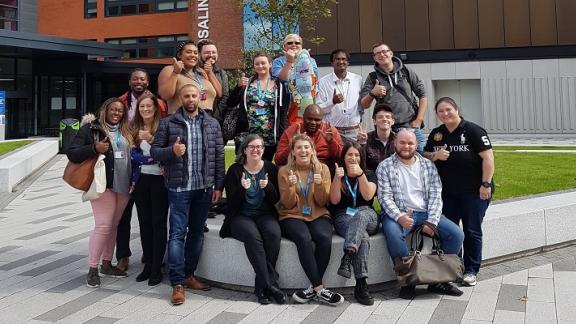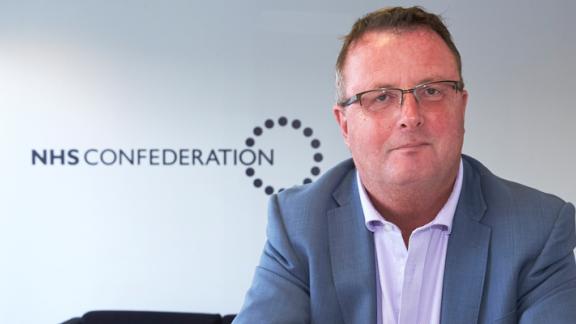Building a nursing workforce fit for the future

David Wilmott, director of nursing at Cygnet Health Care, outlines why funding, training and wellbeing must be considered if the service is to attract a world-class mental health workforce. Cygnet’s nursing associate apprenticeship scheme offers a viable solution to achieving that ambition.
The challenge of attracting and retaining people to work in the field of mental health is well documented. Staff in the sector work incredibly hard to provide the best care in a climate where demand is increasingly intense, but resource significantly more stretched. Indeed, the number of specialist mental health nurses in England is estimated to have declined by more than a tenth over the past decade.
Offering clear pathways that enable people to enter the profession, pursue their career goals and in turn retain their talent is essential if we are to create a workforce that is fit for the future.
There is no easy fix but I think we can start with three areas to focus on which will help support recruitment, retention and recognition.
1. Funding: After scrapping bursaries for nursing students in England, the announcement that all nursing students will get a £5,000-a-year maintenance grant from September 2020 is a welcome first step. The additional offer of £3,000 for those training in areas of care where it is harder to recruit – such as mental health or learning disability care – goes some way to recognising the challenge facing the sector.
While this injection of funding is welcome, the grant still doesn’t provide a full package of financial support for those wanting to become nurses. A return to covering tuition fees for student nurses would alleviate the stress and burden of debt that put many off and provide a much-needed boost to nursing recruitment.
2. Training: In addition, new innovative policies also need to be pursued in order to drive lasting change. Nursing associate apprenticeship schemes provide a valuable alternative approach for those wishing to pursue a nursing career, overcoming some of the time, geography and financial obstacles that prevent so many capable candidates qualifying as a nurse. At Cygnet Health Care, we run our nursing apprenticeship scheme in partnership with the Open University and the University of Wolverhampton. Ambitious staff members in our services can spend one day a week studying, benefiting from lectures and in-house training while they work. It allows apprentices to become nursing associates without high levels of debt.
We remain convinced that widespread adoption of such programmes would be beneficial in helping to alleviate nursing shortages. Our health care support workers have told us how appealing this offer is and that it has helped them step up onto a career ladder that was previously prohibitive because of the cost. We are also introducing a new CAMHS apprenticeship programme too.
3. Wellbeing: We all want to find a work/life balance that is right for us. Working long, intense hours in highly pressurised situations will drive people from their vocations, even the most dedicated and committed nurses will turn away. The nursing workforce is rightly proud of the life-changing, often life-saving care that they give. But we must make sure they feel recognised and rewarded for the unique skill they have in providing that care. We need to look after our staff by being flexible, listening, having reflective practice and providing support so that our nurses feel valued and do not carry unnecessary stress.
Ultimately, large increases in funding are going to be required to address the current shortages. But the point is that not only are there tried and tested ways of ensuring more money would have an impact, but there are also innovations in the sector which point to how money could be made to go even further and have an even greater impact. I remain optimistic that government will see this, and act to support what I still consider to be the best profession in the world.
David Wilmott is director of nursing at Cygnet Health Care. Follow the organisation on Twitter @cygnethealth
To hear more about supporting the workforce and how the NHS People Plan could will drive improvements in how the service can treat and retain our amazing people, be sure to secure your place at the Mental Health Network Annual Conference and Exhibition on 5 March 2020. View the full programme and book your place.



